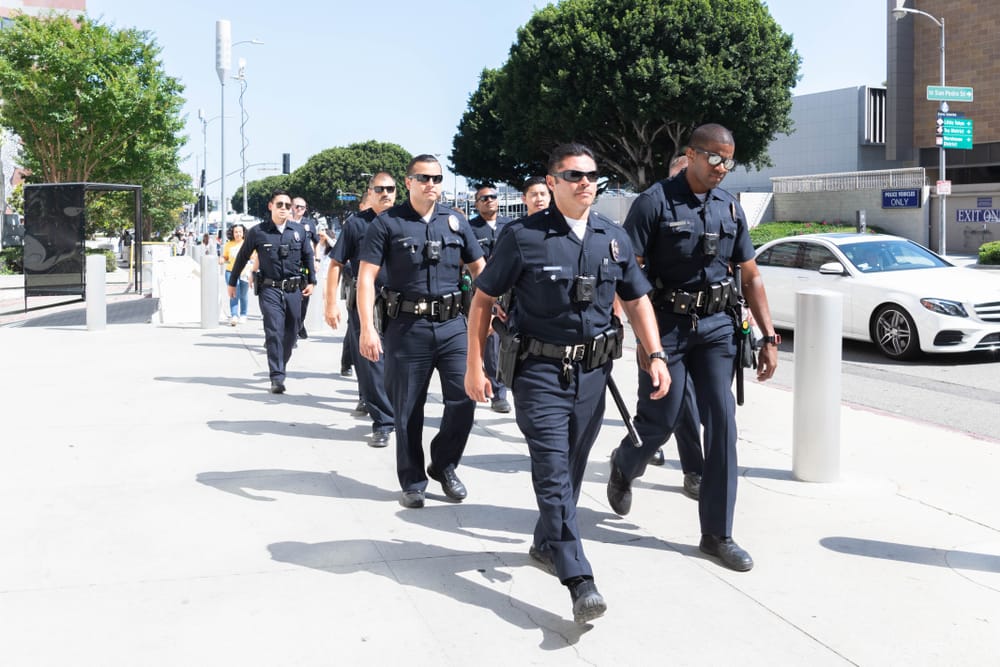 I recently had a prospective client in San Francisco ask me for the definition of a frivolous asylum application. As background, an individual may not be granted political asylum if a Judge determines that an applicant deliberately fabricated any material elements of the asylum application. The Board of Immigration Appeals (“BIA”) in a case called Matter of Y-L-, 24 I & N Dec. 151 (BIA 2007) created a four-part test to determine if an applicant has filed a frivolous application. Before a finding of “frivolous” may be made, an Immigration Judge (“IJ”) must show: (1) the applicant received notice of the consequences of filing a frivolous application; (2) the IJ made a specific finding that the applicant knowingly filed a frivolous application; (3) sufficient evidence that a material element was deliberately fabricated; and (4) there was an indication that the applicant had been afforded a sufficient opportunity to account for any discrepancies or implausible aspects of the claim. I am going to briefly describe these four points.
I recently had a prospective client in San Francisco ask me for the definition of a frivolous asylum application. As background, an individual may not be granted political asylum if a Judge determines that an applicant deliberately fabricated any material elements of the asylum application. The Board of Immigration Appeals (“BIA”) in a case called Matter of Y-L-, 24 I & N Dec. 151 (BIA 2007) created a four-part test to determine if an applicant has filed a frivolous application. Before a finding of “frivolous” may be made, an Immigration Judge (“IJ”) must show: (1) the applicant received notice of the consequences of filing a frivolous application; (2) the IJ made a specific finding that the applicant knowingly filed a frivolous application; (3) sufficient evidence that a material element was deliberately fabricated; and (4) there was an indication that the applicant had been afforded a sufficient opportunity to account for any discrepancies or implausible aspects of the claim. I am going to briefly describe these four points.
Notice
The Asylum regulations state that an “applicant’s signature establishes a presumption that the applicant is aware of the contents of the application.” 8 C.F.R. §1208.3(c)(2). Moreover in Matter of Y-L-, the Board found that notice had been satisfied where the respondent signed his application which contained a warning; where he signed a “Notice of Privilege of Counsel and Consequences of Knowingly Filing a Frivolous Application for Asylum” in front of the Immigration Judge; and where there was an assurance by counsel that he had informed the respondent of the consequences of filing a frivolous application.
Deliberate Misrepresentation
In order for a frivolous finding to be upheld, the preponderance of the evidence must demonstrate that the respondent knowingly filed an application with a deliberate misrepresentation of a material fact. Y-L-, 24 I&N Dec. at 157. An example of a “deliberate misrepresentation” may be found in a more recent case, Kulakchyan v. Holder, 730 F.3d 993 (9th Cir. 2013). In Kulakchyan, the applicant had provided a false arrival date on her application and at the asylum interview. When the asylum officer discovered the arrival date, the officer determined that she time barred from applying (because the application was not filed in one year) and denied the application. The 9th Circuit upheld the BIA’s finding that this misrepresentation was deliberate. I.e., she knew what she was doing when she made up the date of her entry.
Material Misrepresentation
The BIA has long held (in other cases interpreting “material”) that a misrepresentation is material if the respondent is excludable on the true facts or the misrepresentation tends to shut off a line of inquiry relevant to the benefit that might have resulted in the individual’s exclusion. There have not been any recent published 9th Circuit opinions on this issue, but in unpublished opinions, the 9th Circuit has found material misrepresentations in a case where an applicant claimed he had not seen his father for a certain number of years, (and the application was based on his claim that his father had been “made disappeared” by the government authorities), but then when confronted with contrary evidence, later admitted he was living with his father in southern California. The applicant also admitted to lying about persecution in his country and about being afraid to return. The Court found all of these misrepresentations to be material.
Sufficient opportunity to explain discrepancies
A frivolous finding shall only be made if the IJ is satisfied that the applicant, during the course of the proceedings, had a sufficient opportunity to account for any discrepancies or implausibilities that form the basis of the frivolous finding. 8 C.F.R. § 1208.20. In Y-L, the Board went so far as to indicate that the IJ bring the possibility of a frivolous finding to the attention of a respondent during the course of the hearing. (Y-L- 24 I&N Dec. at 159-60.)
The consequences of a frivolous finding are severe. If there is a determination that an application for asylum was frivolous, an individual is prevented from seeking asylum or adjustment of status (green card). The person, however, is not prevented from receiving withholding of removal. (As withholding requires that an applicant meet a higher burden of proof, I have not seen anyone been granted withholding who was denied asylum but I suppose it can happen.) An individual is also not prevented from seeking relief under the Convention Against Torture (“CAT”) because relief under CAT has been determined not to be a benefit under the Immigration Act. All in all, it is important to think carefully before applying and to apply only if the facts of your case are true.





